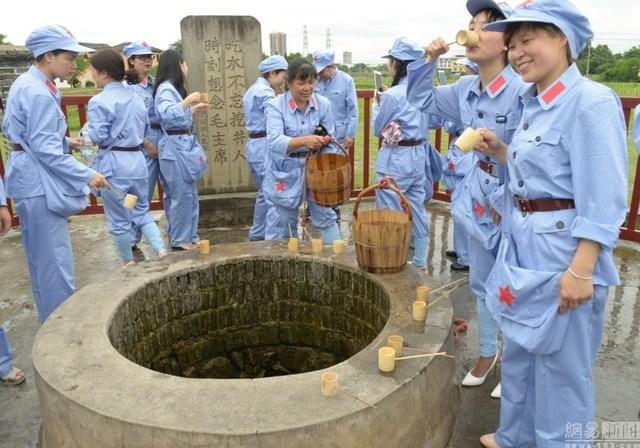The Chinese Communist Party has tried many ways to warn its officials away from the life of corruption: disappearances in the night, torturous interrogation sessions, and hardcore indoctrination in Party discipline and obedience. Now, a new process is being added to the list: dressing their spouses in revolutionary costumes from the 1930s and educating them instead.
Apparently the hope is that they will bring back that message to their husbands, and China will prosper.
The education session was highlighted most recently on May 22, when spouses of 50 Jiangxi officials dressed up in Red Army (the predecessor to the People’s Liberation Army) uniforms to receive “red traditional education,” a special anti-corruption training session.
The 50 women were assembled in Ruijin, a city in Jiangxi Province that was host to some key moments in early Party history, to receive education on the history of the Party. Part of this included education in anti-corruption.
The special training was dismissed by Internet users. Netizen “Jincuo Daohang” remarked, “Can I say that it’s a disguised form of traveling with public funds? They are all officials’ wives, and look at their happy faces. It’s so obvious.“ The remark made on May 24 recevied 1,500 likes. Another wrote: ”I just want to laugh when I see it.”
A little over a week earlier, on May 13, another indoctrination session was held by the Hubei provincial government, where 70 officials and their spouses were organized to visit a local detention center to experience the life of detained corrupt officials.
After passing through several heavy metal gates and by high walls with electric barbed wire, the officials and spouses visited the cells: over 10 inmates slept on a long wooden bed, while others sat in rows, engaged in “study and self-reflection,” Chinese media reports said.
Photographs of the prisoners and their crimes were listed on the wall, while the detained former officials came out to give speeches to the visitors, wearing handcuffs and prison clothes. “I have a family but can’t go home,” one of the speakers, surnamed Yang, said through a flood of tears. “I can’t honor my parents, and can’t get together with my husband and son. I’m so full of regret.”





